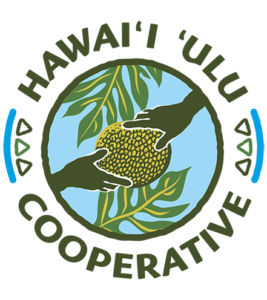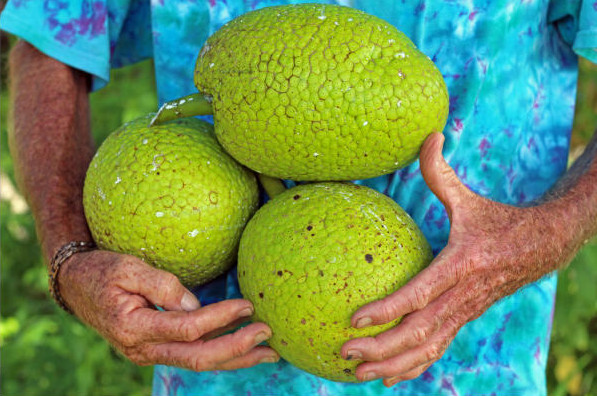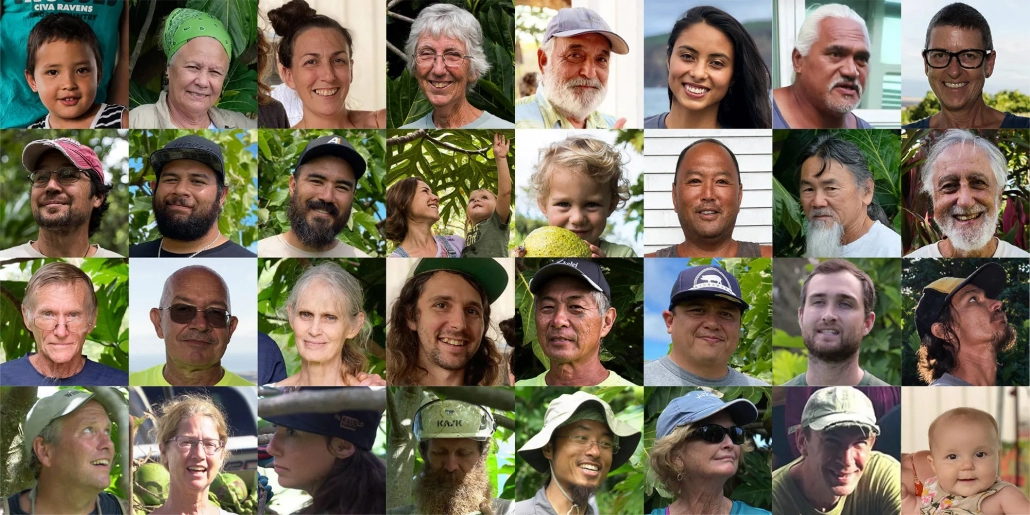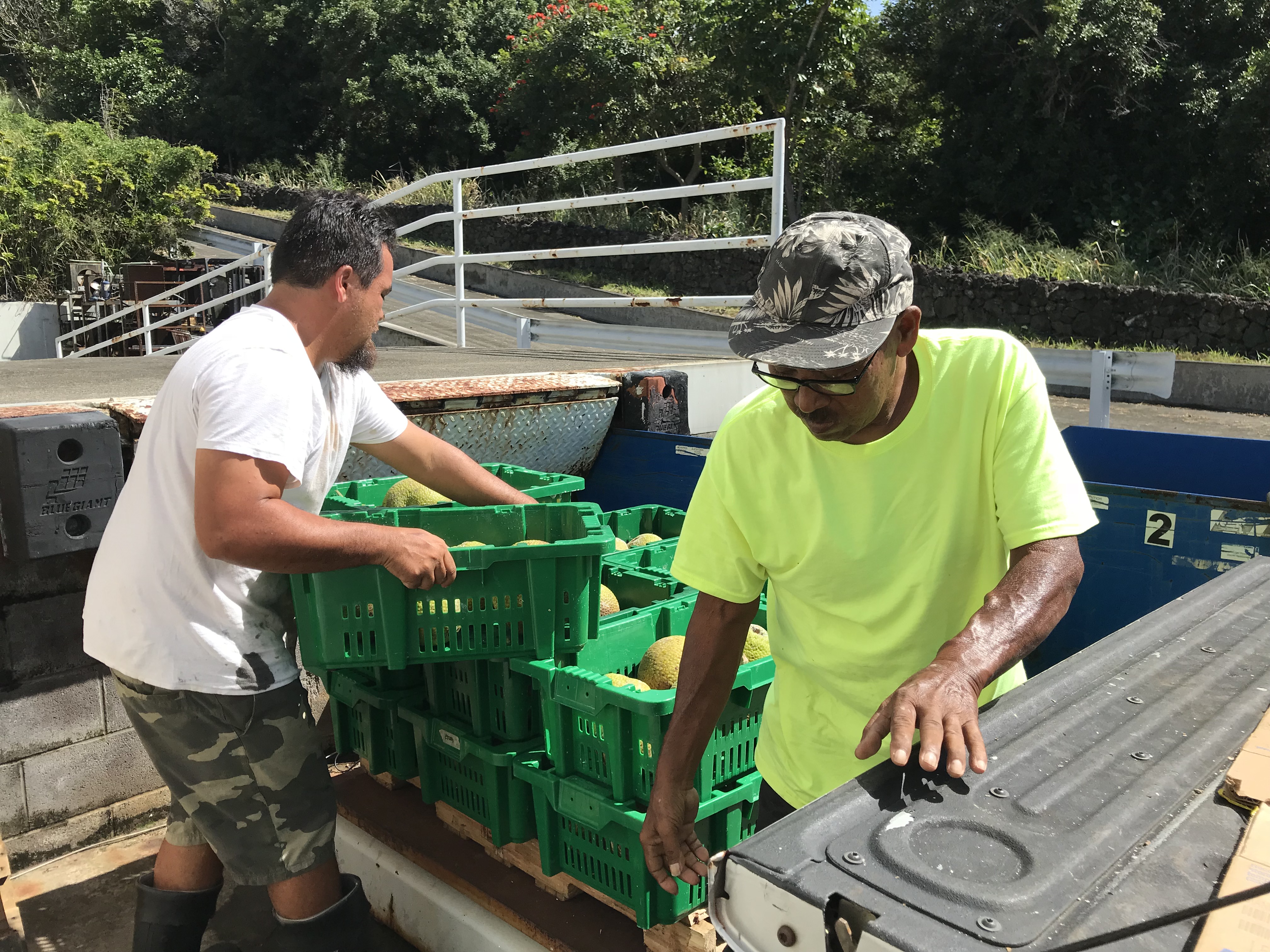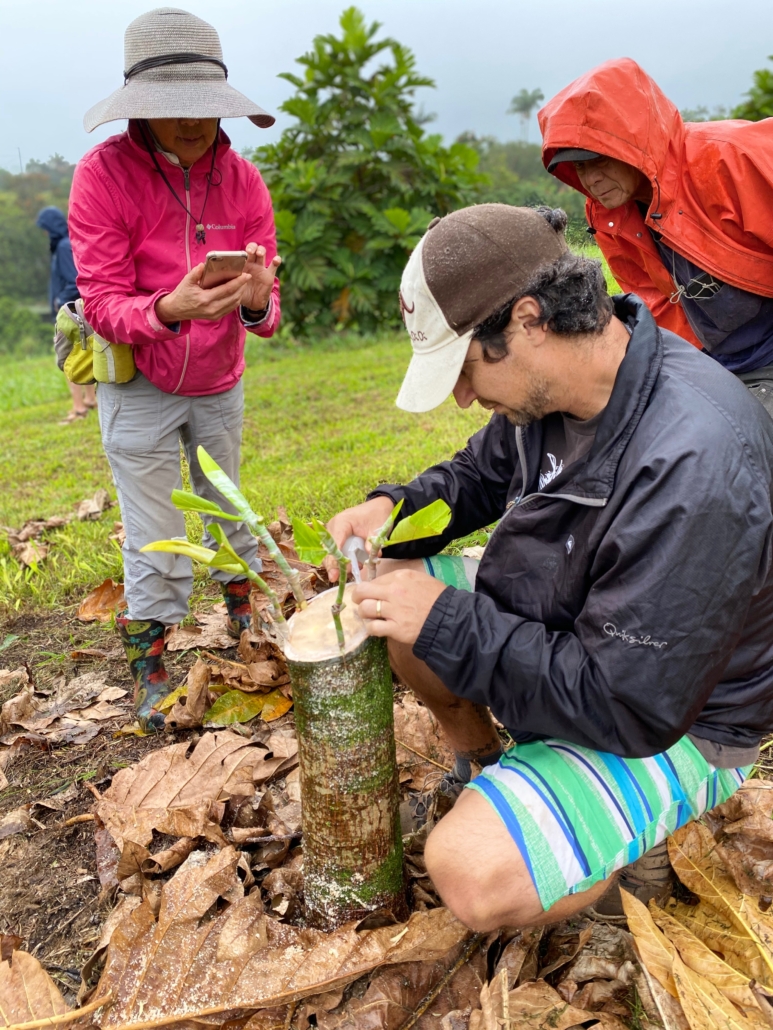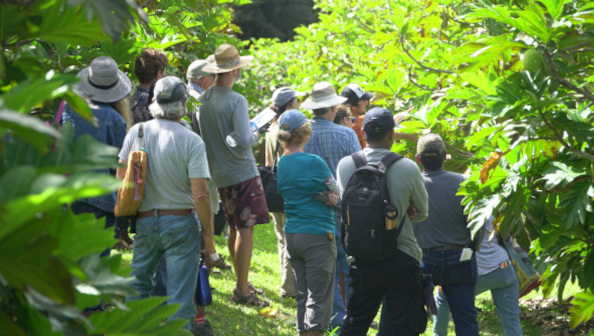EXPLORING THE COOPERATIVE STRUCTURE OF THE HAWAIʻI ʻULU CO-OP
A cooperative is a social enterprise that is member-owned and member-controlled and prioritizes the well-being of its members. A co-op differs from a typical business organization in that it does not focus on making a profit for outside shareholders – but on ensuring that its members’ needs are taken care of.
The Hawaiʻi ʻUlu Cooperative is made up of 150+ farmers who each hold an equal stake in the business and are the only shareholders with a vote.
The cooperative provides its farmer-members with a guaranteed market and stable price for their ʻulu, education and technical support, and the opportunity to participate in the democratic governance of a community-based organization and to benefit economically from their patronage, or use, of the co-op’s services.
Some of the benefits that co-ops – including the Hawaiʻi ʻUlu Co-op – provide their members include:
- Help develop economies of scale through collective action
- Attain bargaining power
- Leverage each other’s social, economic, political, and other resources
How We Cultivate Unity and Sustainability:
We as a cooperative are committed to revitalizing the local food system, promoting sustainable agriculture, and empowering farmers. Through collaborative efforts and democratic decision-making processes, we strive to cultivate a sense of unity and shared responsibility among our members. These collective efforts support our goals in helping strengthen local capacity for food security and increase Hawaiʻi food sovereignty and self-reliance.
Understanding Cooperatives
Cooperatives prioritize meeting the needs and aspirations of their members. They operate on the 7 Principles of Cooperation, where individuals come together voluntarily to pool resources, share risks, and collectively reap the rewards. The primary goal of a cooperative is to serve its members rather than maximize profit, making it a democratic and inclusive business model. More about each of the seven principles is outlined below:
#1 Voluntary and Open Membership
All individuals passionate about revitalizing ‘ulu as a cornerstone of the local food system and promoting sustainable agriculture in Hawaiʻi are welcome. We provide an inclusive and open platform for farmers and community members to join and contribute.
#2 Democratic Member Control
Members have an equal say in decision-making by voting to elect Board directors (who are also farmers) and directly weighing in on organizational structure. Board directors in turn actively shape our direction and policies, ensuring a democratic and inclusive governance structure.
#3 Member Economic Participation
Our members contribute their resources, expertise, and efforts to the cooperative’s operations and success. Any surpluses that we generate are distributed equitably among members, reflecting their contribution level.
#4 Autonomy and Independence
Our members have the freedom to make decisions and manage their affairs in a manner that aligns with HUC’s objectives and their needs. Members are allowed to determine their farming practices, distribution methods, and overall business strategies without outside interference.
#5 Education, Training, and Information
We continuously strive to enhance our members’ knowledge and skills in sustainable agriculture, indigenous crops, agroforestry, food safety, community-based initiatives. It is also our goal to promote awareness and spread information about the benefits of local food systems and cooperative models.
#6 Cooperation Among Cooperatives
We also collaborate with other cooperatives, collective organizations, and stakeholders within the local agricultural community. For example, we supply our products to Kōkua Market, one of the state’s oldest cooperatives, work closely with Organic Valley as our advisor co-op, and support start-up cooperative initiatives across various other agricultural industries in Hawai‘i. By forming partnerships and networks, cooperatives work together to foster increased cooperation, share resources, and amplify their collective impact in revitalizing the local food system in Hawaiʻi.
#7 Concern for Community
We are deeply rooted in our commitment to the community. We make sure to prioritize the local community’s social, economic, and environmental well-being by promoting sustainable agriculture practices, supporting local farmers, and actively addressing community needs. We want to contribute to the overall resilience and vitality of Hawai‘i nei. Please read some of what the community has to say about us here.
Through our commitment to unity, sustainability, and member empowerment, we aim to revitalize the local food system and support sustainable agriculture. By prioritizing the well-being of our members and the community, we contribute to a resilient and vibrant future for Hawaiʻi. Our success showcases the transformative potential of cooperatives and highlights the importance of collaborative and community-focused initiatives. We can build a more inclusive, democratic, and sustainable economy through cooperative models like the ʻUlu Cooperative.
If you are a farmer growing ʻUlu and want to join the co-op, visit our Join the Co-op page for more information.
Additional Information and Resources:
WEBINAR: Hawaiʻi Cooperative Webinar Series
VIDEO: About the Hawaiʻi ʻUlu Cooperative
External links:
United Nations: International Day of Cooperatives July 1st
The Kohala Center: Rural and Cooperative Business Development Services
Organic Valley: Our farmers own the company. Not the other way around.
Civil Beat: Worker Co-ops Can Lead The Way To A Healthier And More Just Economy
